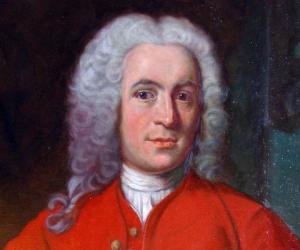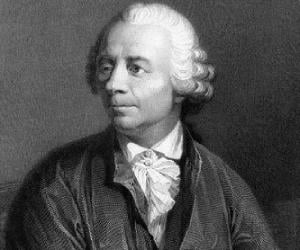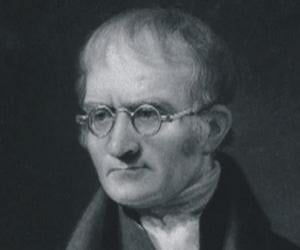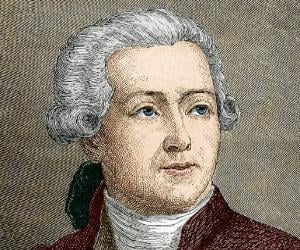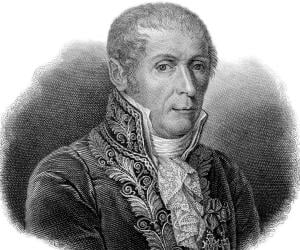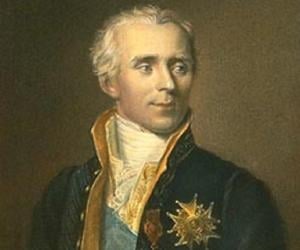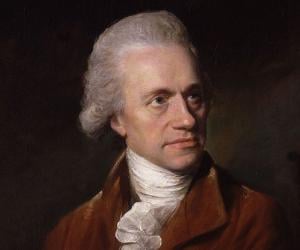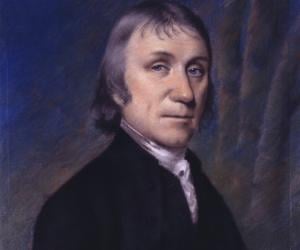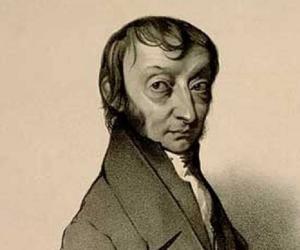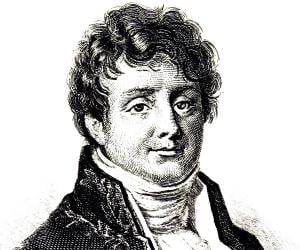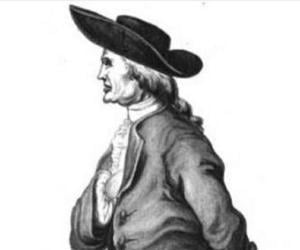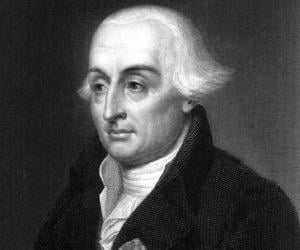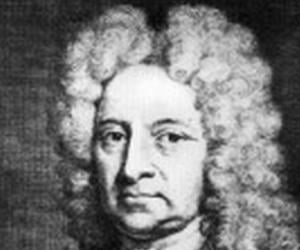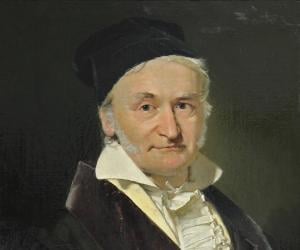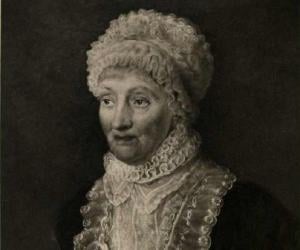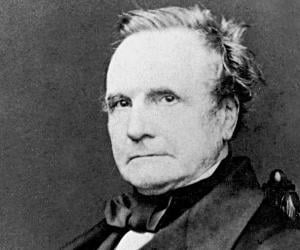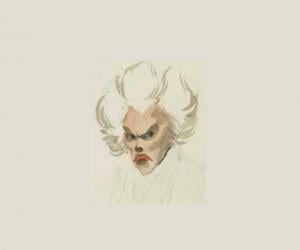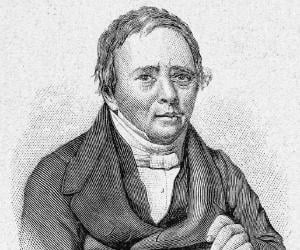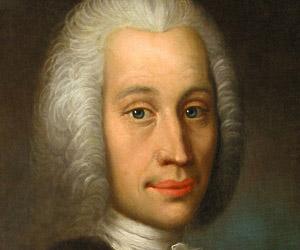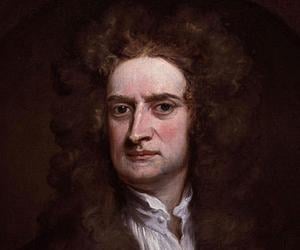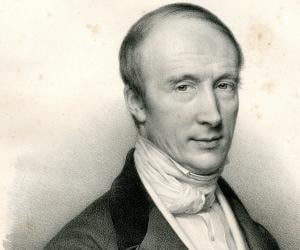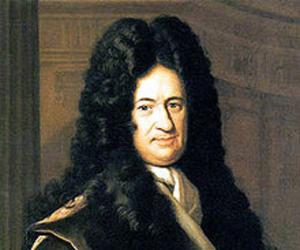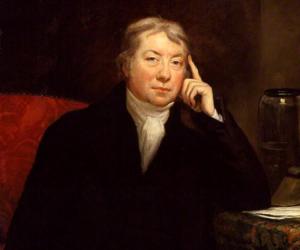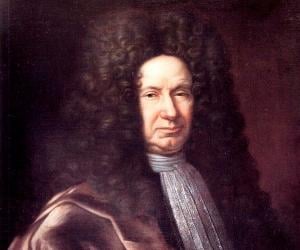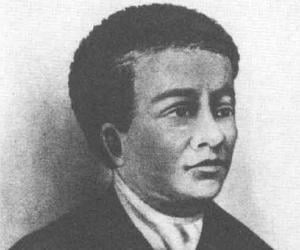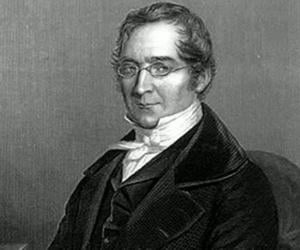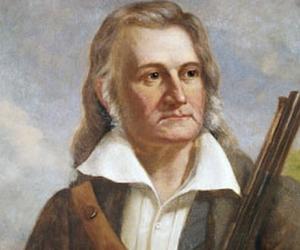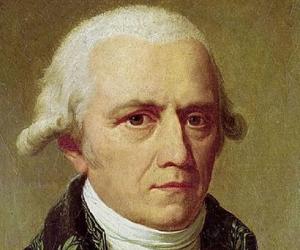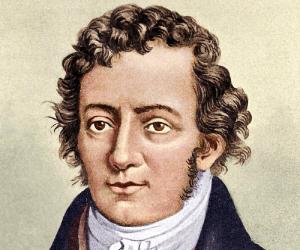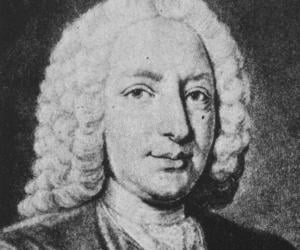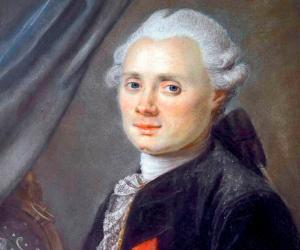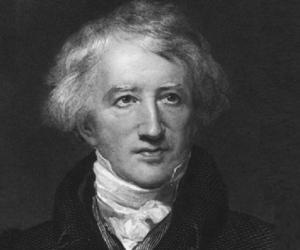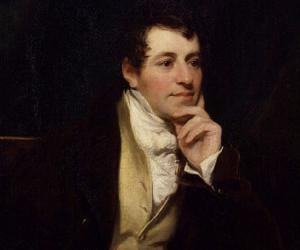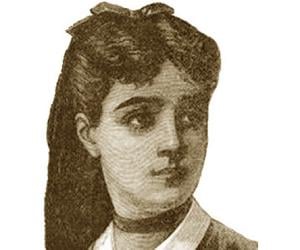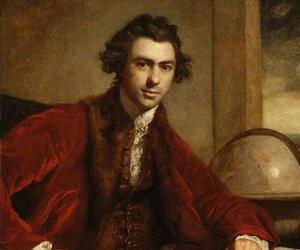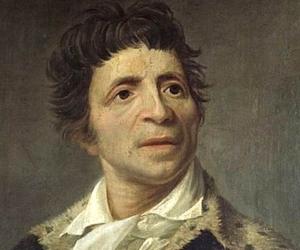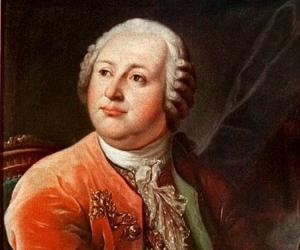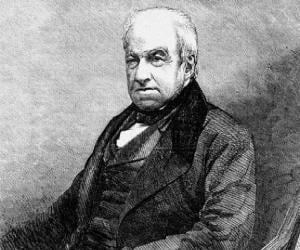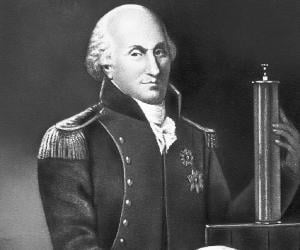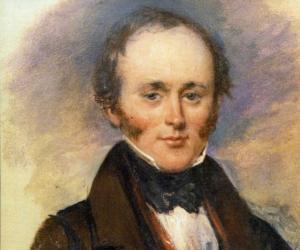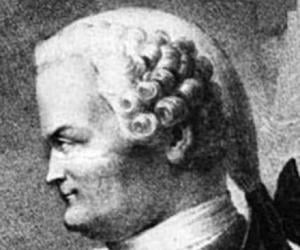Swedish botanist and lecturer Carl Linnaeus, who established the concept of binomial nomenclature, or the system of naming organisms, is also known as the father of modern taxonomy. His system of classification is known as Linnaean taxonomy. He was the first to include humans and apes under the header Anthropomorpha.
Leonhard Euler was a Swiss physicist, mathematician, logician, geographer, astronomer, and engineer. He is credited with making influential and important mathematical discoveries, such as graph theory and infinitesimal calculus. Widely regarded as one of the greatest and most prolific mathematicians of all time, Leonhard Euler also made pioneering contributions to analytic number theory and topology.
John Dalton was an English chemist, physicist, and meteorologist most famous for introducing the atomic theory into chemistry. He also contributed a lot to the study of color blindness, sometimes referred to as Daltonism in his honor. He was the first scientist to refer to the smallest particle of matter as an “atom.” He was a Quaker and lived modestly.
Antoine Lavoisier was a French chemist and nobleman. He played a crucial role during the chemical revolution of the 18th-century. Widely regarded as the father of modern chemistry, Lavoisier had a major influence on the history of biology as well as the history of chemistry. He also helped build the metric system.
Though French scholar Pierre-Simon Laplace is primarily known for his work on the solar system, his research extended to areas such as mathematics and physics, apart from astronomy. Widely known as the Newton of France, he escaped being executed during the French Revolution, owing to his lack of political views.
William Herschel was a German-born British astronomer and composer. He pioneered the use of astronomical spectrophotometry and discovered infrared radiation. Impressed by his work, King George III appointed him the Court Astronomer. Herschel often collaborated with his sister, Caroline Lucretia Herschel, a fellow astronomer. In 1816, he was made a Knight of the Royal Guelphic Order.
Best remembered for his contribution to the chemistry of gases, Joseph Priestley was an English scientist, clergyman, political theorist and educator, who has been credited with discovering oxygen independently, publishing his findings before Carl Wilhelm could. A prolific writer, he has authored 150 works on various subjects including electricity. He also contributed immensely to the advancement of political and religious thoughts.
Son of a reputed senator and lawyer in Italy, Amedeo Avogadro was himself a qualified lawyer. However, he later delved into research as a mathematical physicist and is best remembered for laying down the Avogadro’s law, contributing to the molecular theory of gases. The Avogadro constant is named after him.
Joseph Fourier was a French physicist and mathematician best remembered for commencing the investigation of the Fourier series, which is used widely to solve problems of heat transfer and vibrations. Fourier's law of conduction and Fourier transform are named in his honor. Fourier is also said to have discovered the greenhouse effect.
English natural philosopher, scientist, and a prominent experimental and theoretical physicist and chemist Henry Cavendish is best-remembered for his discovery of hydrogen and his Cavendish experiment. He first recognized that hydrogen, which he termed inflammable air, is a discrete substance which produces water on combustion. He conducted the Cavendish experiment to measure and produce a value for Earth’s density.
Joseph Louis Lagrange was an Italian mathematician and astronomer who made significant contributions to the fields of number theory, analysis, and both classical and celestial mechanics. He served as the director of mathematics at the Prussian Academy of Sciences in Berlin for over 20 years. He later moved to France and became a member of the French Academy of Sciences.
Edmond Halley was an English astronomer and mathematician who was mainly concerned with practical applications of science. He abandoned college education to travel to St. Helena. He published catalogue of 341 southern stars with telescopically determined locations. Known for his wide range of interest, he helped Newton to publish his magnum opus, Philosophiæ Naturalis Principia Mathematica. He used Newton's Law of Motion to compute periodicty of Halley’s Comet.
German mathematician and physicist Carl Friedrich Gauss is remembered for his work in math and science. Known as the Princeps mathematicorum, he laid down tenets such as the Gauss's Law. He had exhibited his talent since an early age and had completed writing Disquisitiones Arithmeticae by 21.
Caroline Herschel was a German astronomer who is credited with the discovery of many comets, such as 35P/Herschel-Rigollet, which is named in her honor. In 1828, Herschel became the first woman to be honored with a Gold Medal of the Royal Astronomical Society. She was also the first female scientist to receive a salary.
Born into an affluent family, French mathematician Adrien-Marie Legendre probably never had to earn a living till the beginning of the French Revolution. Excelling in math and physics, he later contributed to areas such as elliptic functions, developed the least squares method, and lent his name to Legendre polynomials.
Hans Christian Ørsted was a Danish chemist and physicist. He was the first person to discover that electric currents can be used to create magnetic fields. His discovery was the first relationship found between magnetism and electricity. Oersted, the unit of the auxiliary magnetic field H, is named in his honor.
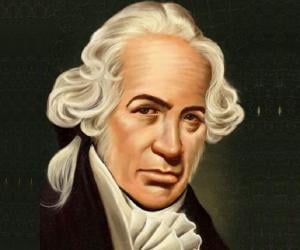
Daniel Gabriel Fahrenheit was a scientific instrument maker, inventor, and physicist. One of the most prominent and influential personalities of the Dutch Golden Age of science and technology, Fahrenheit is credited with many important inventions, including the mercury-in-glass thermometer and Fahrenheit scale. His inventions helped shape the history of thermometry.
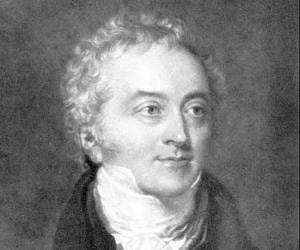
Often referred as The Last Man Who Knew Everything, British polymath Thomas Young made significant contributions to a wide range of subjects like vision, light, energy, musical harmony etc. Especially famous for Wave Theory of Light, he also made significant contribution in deciphering of Egyptian hieroglyphs. Young-Helmholtz theory, Young temperament and Young's Modulus carry his legacy to these days.
One of the most influential and popular scientists of all time, Sir Isaac Newton played a prominent role in our understanding of natural phenomena. He formulated the law of universal gravitation and laws of motion. He also developed the Newtonian telescope among other devices. Apart from science, Newton was also intrigued by religion, occult, and alchemy.
French mathematician Augustin-Louis Cauchy was initially a military engineer. In his early days, he and his family escaped the Reign of Terror and settled in Arcueil. He was one of the pioneers of mathematical analysis and made significant contributions to subjects such as error theory, calculus, and complex functions.
Edward Jenner was an English scientist and physician. Referred to as the father of immunology, Jenner is credited with pioneering the concept of vaccines. Jenner's work laid the foundation for subsequent discoveries in the field of immunology; his work is believed to have saved more lives than any other work. In 2002, Jenner was included in BBC’s Greatest Britons list.
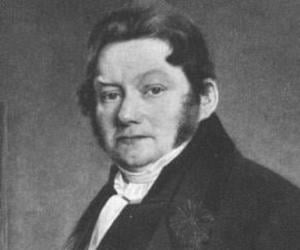
Jöns Jacob Berzelius was a Swedish chemist who is often counted among the founders of modern chemistry alongside Robert Boyle, Antoine Lavoisier, and John Dalton. He is also referred to as the Father of Swedish Chemistry. Jöns Jacob Berzelius is also credited with making immense contributions to the field of stoichiometry. In 1836, he was honored with the Copley Medal.
Benjamin Banneker was born to a free African-American mother and a former slave father, and was largely self-educated. While he showed immense talent in both mathematics and astronomy, having predicted a solar eclipse with precision, he also wrote essays on civil rights and rallied against slavery.
Known for his pathbreaking Gay-Lussac's Law, French chemist-physicist Joseph Louis Gay-Lussac was also the first, along with his colleague Alexander von Humboldt, to discover that water is composed of one part of oxygen and two parts of hydrogen. His name is one of the 72 that adorn the Eiffel Tower.
American artist and ornithologist John James Audubon is remembered mostly for his illustrations of North American birds. Born as an illegitimate child in France, he later moved to the US and then to Canada, for business, but ended up documenting birds. His best-known work is the pioneering ornithological work The Birds of America.
French biologist Jean-Baptiste Lamarck acquired his love for plants while serving as a soldier in the French army. Following an injury, he quit his military career but retained his love for botany. He later taught zoology, studied the classification of invertebrates, and also coined the term biology.
Andre Marie Ampere was a French physicist and mathematician. He is best known for being one of the founders of the science of classical electromagnetism. He was a professor at the École Polytechnique and the Collège de France and a member of the French Academy of Sciences. The base SI unit of electric current, the ampere, is named after him.
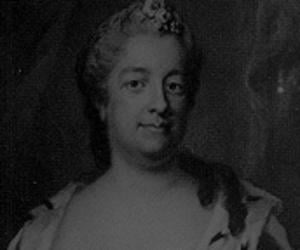
Eva Ekeblad was a Swedish countess, agronomist, salon hostess, and scientist. In 1746, she discovered a method to make flour and alcohol from potatoes which earned her popularity. Her discovery made her the first female inductee of the Royal Swedish Academy of Sciences in 1748.
Daniel Bernoulli was a Swiss physicist and mathematician. Born into the popular Bernoulli family of mathematicians, Daniel Bernoulli is renowned for his applications of mathematical equations to mechanics. He is also remembered for his pioneering work in statistics and probability. In 2002, he was inducted into the International Air & Space Hall of Fame.
French astronomer Charles Messier is remembered for his pioneering tabulation of nebulae, making it easier to differentiate between nebulae and comets. King Louis XV name him The Comet Ferret. He was drawn to astronomy when he witnessed a solar eclipse and the great six-tailed comet in childhood.
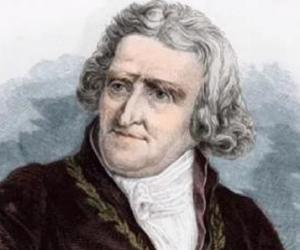
While in prison, in the aftermath of the Seven Years’ War, army pharmacist Antoine-Augustin Parmentier was forced to eat potatoes, which were considered fit only for prison ration and animal feed back then. Parmentier later persuaded the Paris Faculty of Medicine to declare potatoes edible and popularized them in France.
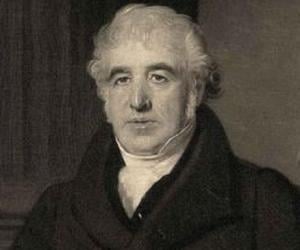
Georges Cuvier was a French zoologist and naturalist. A major figure in the early 19th century's research of natural sciences, Cuvier played an important role in establishing the fields of comparative paleontology and anatomy by comparing fossils with living animals, for which he is sometimes regarded as the founding father of paleontology.
Best remembered for his invention of the Davy lamp, a safety lamp for miners, Humphry Davy initially aspired to be a doctor but later deviated to chemistry. The Copley Medal winner had co-founded the Zoological Society of London. He also excelled in writing poetry and loved fishing.
French mathematician Sophie Germain had used the pseudonym M. Le Blanc to get hold of notes from the École Polytechnique, as being a woman, she was not allowed to attend the institute. She later contributed to the number theory and also pioneered the elasticity theory. She died of breast cancer.
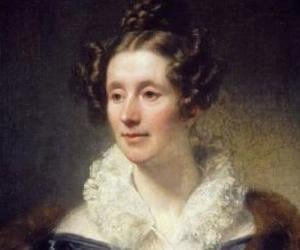
One of the two pioneering female honorary members of the Royal Astronomical Society, Mary Somerville was a 19th-century polymath and science writer. Though she specialized in math and astronomy, she was also well-versed in botany and geology. The Connection of the Physical Sciences remains her most notable work.
British naturalist Joseph Banks is remembered for accompanying Captain James Cook on his voyage across places such as Brazil and Tahiti. He had also been the president of the Royal Society for over 40 years. Both his herbarium and library now find a place at the British Museum.
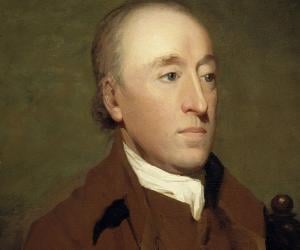
The pioneer of modern geology, James Hutton laid down the principle of uniformitarianism in geology. While he was initially interested in chemistry, he had later also studied law and had then moved on to medicine. His iconic Theory of the Earth explained the science behind rock formations.
French political theorist, scientist, and physician Jean-Paul Marat was a key figure of the French Revolution. He published his radical views in pamphlets and newspapers, such as L'Ami du people. He was held responsible for the September massacres. His assassination by a Girondin supporter made him a Jacobin martyr.
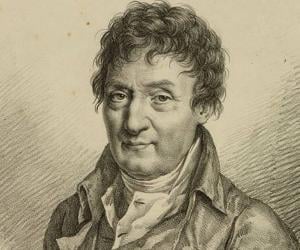
Best known for developing the Charles’s law, which explains the expansion of gases when heated, Jacques Charles was a prominent French physicist. He was the first to ascend in a hydrogen-filled gas balloon, thus pioneering hot-air balloon flight. The Académie des Sciences member later became a professor of physics.
Russian polymath Mikhail Lomonosov was born to a fisherman father and left his village later to satiate his hunger for knowledge. Apart from reforming Russian language and literature, he also made the first colored glass mosaic in his country and discovered the atmosphere of Venus. He loved simple life.
Copley Medal-winning Scottish botanist Robert Brown is remembered for his detailed descriptions on topics such as the cell nuclei and what later came to be known as the Brownian motion. After studying medicine, he had also served the British Army as a surgeon and also toured the Australian shores aboard The Investigator.
French physicist Charles Augustin De Coulomb, remembered for laying down the Coulomb’s law, had previously been a military engineer in the West Indies. At the onset of the French Revolution, Coulomb, struggling with failing health, devoted himself to research. The unit of electric charge, coulomb, was named after him.
Charles Lyell was a Scottish geologist best remembered for his work Principles of Geology, which explains the origin of the earth. He is also remembered for his pioneering explanation of climate change. A close friend of Charles Darwin, Charles Lyell is also credited with influencing many of Darwin's works pertaining to the theories of evolution.
Johann Heinrich Lambert was a Swiss polymath whose contributions to the fields of physics, mathematics, map projections, astronomy, and philosophy are considered important by many scholars. He is credited with introducing hyperbolic functions into trigonometry. He is also credited with inventing a hygrometer, which is used to measure the quantity of water vapor in soil and air.
